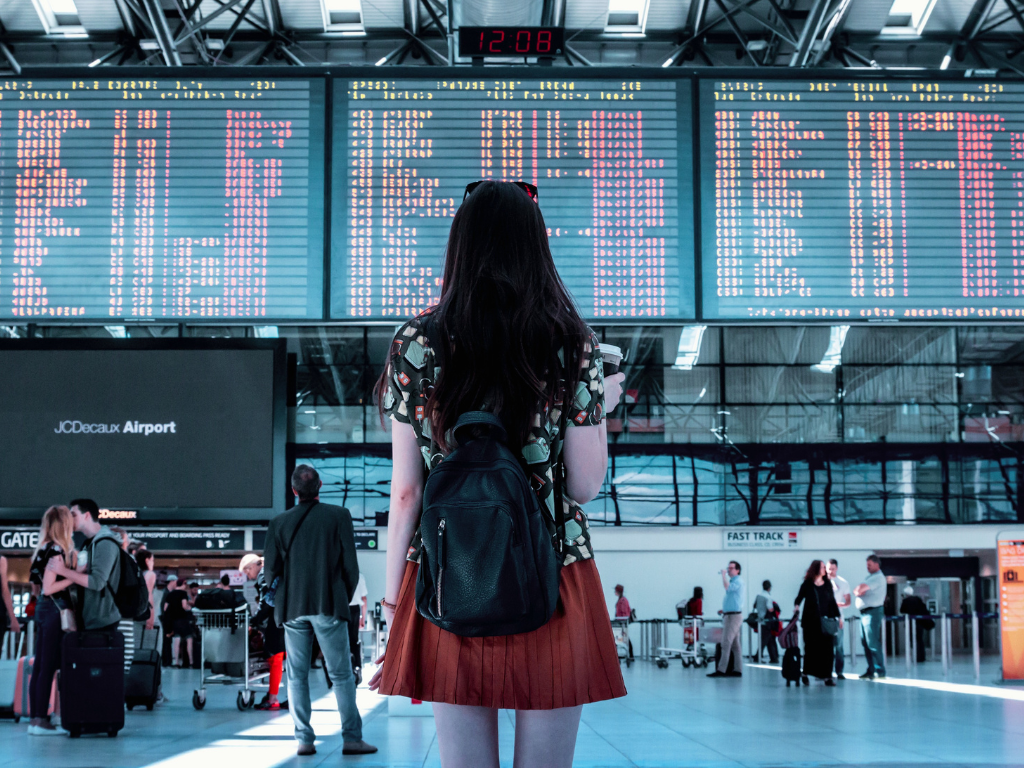1.5 to 2 million won before COVID-19 in Paris and New York ↑
“I’ve been waiting for you for a long time, but it’s so busy”
Lower-than-demand flight supply, oil prices soar
“It’s hard to normalize this year.””It’s not until next year
give up traveling
Lim Hee-jin (27), who planned her honeymoon to Paris when the sky road opened, postponed her honeymoon for now due to airfare. Lim, who married in January when the skyway was blocked, came to go on a honeymoon abroad after the lifting of the COVID-19 distancing, but as the round-trip airfare for two people exceeded 5 million won, he had no choice but to postpone it again.
Sky roads began to open on April 14, when the Ministry of Foreign Affairs lifted the special travel warning, but many people give up or postpone overseas travel due to high airfare.
In fact, when I searched for one-person round-trip tickets that depart early next month and return a week later on the ticket price comparison site, the lowest prices of the national flag were about 3 million won. Considering that Incheon-Paris and Incheon-New York were around 1.5 million won and 2 million won, respectively, in 2019, before the COVID-19 epidemic, the price nearly doubled.
There is a sigh among those who have been blocked from overseas travel for more than two years. Kim (29), who planned to travel abroad with his girlfriend, said, “I decided to go abroad, but it was too burdensome,” adding, “Airfare has risen too much and additional costs are high.” Yang (20), who saved money for a year for a backpacking trip to Europe, which was a bucket list, said, “I still don’t have enough money saved,” and postponed his plan to travel abroad to next year. Kang Jin-young (47), who wants to travel abroad with his family, also said, “I feel so sorry for the old airfare,” adding, “I’m waiting (for the price to fall).”
The sharp rise in airfare is due to the supply’s inability to catch up with the explosive increase in demand. According to the Ministry of Land, Infrastructure and Transport, international flights operated 532 times a week in May. Compared to 4,714 operations a week before the COVID-19 epidemic, it is one-ninth. Demand for aviation has soared due to “revenge consumption” since the lifting of the distance, but prices have risen significantly as supply has failed to keep up.
The rise in oil prices is also the reason for the rise in airfare. According to the Ministry of Trade, Industry and Energy, Dubai crude nearly doubled to $108.2 in May from $54.8 a year earlier.
The government is determined to solve the problem of soaring airfare due to the early normalization of international flights by lifting aviation regulations. Earlier in April 2020, the Ministry of Land, Infrastructure and Transport set aviation regulations to limit the number of aircraft arrivals to 20 per hour and set a flight ban from 8 p.m. to 5 a.m. to block the inflow of COVID-19. The Ministry of Land, Infrastructure and Transport recently announced that it will lift the flight ban and increase the number of arrivals to 40 to help the airline industry recover and stabilize ticket prices.
Nevertheless, the observation that normalization within this year is not easy is gaining momentum. Hwang Yong-sik, a professor of business administration at Sejong University, said, “All goods and services prices have risen significantly, and airlines need to secure reduced manpower such as pilots again.”
- Rising Popularity and Market Recognition of Gwangmyeong Sweedy Therapy
- The Gwangmyeong Sweedy Therapy Popularity Ranking: An Inside Scoop on its Market Dominance
- Exploring the Popularity Ranking of Gwangmyeong Sweedy Therapy in Marketing Trends
- The Rise of Gwangmyeong Sweedy Therapy Popularity Ranking in the Healing Arts
- Gwangmyeong Sweedy Therapy: An Explorative Analysis on its Ascending Popularity in the Therapeutic Market
